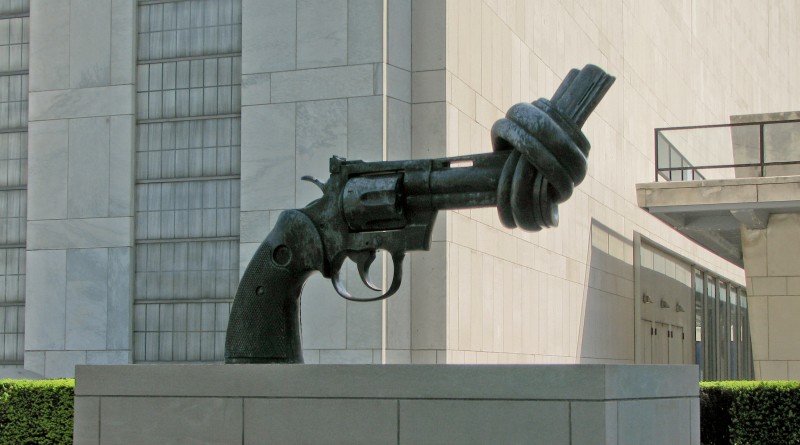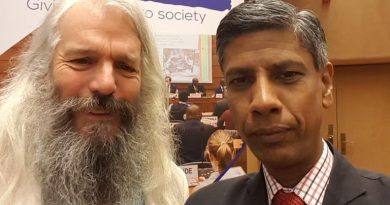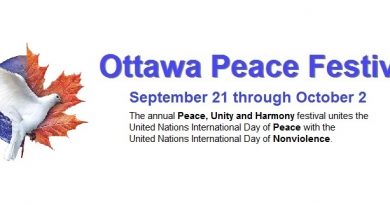CGNK at UN Hearing on Development, New York
The Center for Global Nonkilling, in its capacity of non-governmental organization in special consultative status with the United Nations Economic and Social Council, participated on April 28, 2015, at the ECOSOC Civil Society Hearing on the longer-term positioning of the United Nations development system. CGNK made a presence through its newly designated UN New York Representative Ryan Lavigne and also submitted a formal written statement, which is reproduced below.
The goal of the hearing was to develop a transparent and inclusive dialogue involving Member States and relevant stakeholders on the longer-term positioning of the United Nations development system, taking into account the post-2015 development agenda. CGNK welcomed the inclusion of the prevention and reduction of killing in the OWG proposal for Sustainable Development Goals (SDG) of target 16.1: “Significantly reduce all forms of violence and related death rates everywhere”.
Supporting Nonkilling as a long-term development goal
In a statement to the 27th session of the Human Rights Council (A/HRC/27/NGO/114), the Center for Global Nonkilling (CGNK) provided arguments for the inclusion of the prevention and reduction of killing in the Post-2015 Development Agenda. We thus welcome the inclusion in the OWG proposal for Sustainable Development Goals (SDG) of target 16.1: “Significantly reduce all forms of violence and related death rates everywhere” and encourage all parties to include such a goal in the final SDG document and in the wider post-2015 developing agenda.
CGNK considers to right to life and therefore the duty not to kill as the moral and legal support of target 16.1. We have the knowledge needed to drastically reduce levels of violence and build killing-free societies. Last September, a World Health Organization conference at the University of Cambridge explored “Global Strategies to Reduce Violence by 50% in the Next 30 Years” and its Global Status Report on Violence Prevention (December 2014) presented an encouraging 16% global decline of homicide rates since the 2002 World Report on Violence and Health; decline which can be connected to successful implementations of prevention practices. The Center for Global Nonkilling has also published a wide range of supportive cross-disciplinary studies.
Significant know-how exists within the UN and its Member States. Including prevention and reduction of killing as a measurable component of SDGs will bring about the necessary social, political and institutional momentum needed to put violence prevention policies, programs and strategies into effective practice. Failure to seize this opportunity for building safe killing-free communities worldwide may jeopardize other development goals, as already established by the UN General Assembly in resolution: “Promoting Development through the Reduction and Prevention of Armed Violence” (A/RES/63/23).
Upholding the recommendations of the WHO’s “Violence Prevention Alliance” , we hereby call for 1) Setting baselines and targets for the prevention of violence in general with an emphasis on measurable lethal violence; 2) Scale up prevention programmes that have been proven successful; 3) Ensure that existing laws relevant to violence prevention are fully enforced; 4) Tracking progress toward its reduction and eventual elimination by strengthening data collection. For this to happen and for the wider target of SDG 16 to be fulfilled (“Promote peaceful and inclusive societies for sustainable development”), a shift of attention toward prevention must occur at the UN and in Member States. Funding and staffing for UN agencies and departments working on prevention of violence should be expanded and violence prevention shall be considered a transversal component for action across the UN system. Ministries and infrastructures for peace, disarmament and nonkilling are needed in every country. Specific constitutional provisions such as Japan’s Article 9 or other legislative measures need to be adopted by Member States, thus taking constitutional and legislative action to embark on the transition towards nonkilling peace, collective security, disarmament and development.




